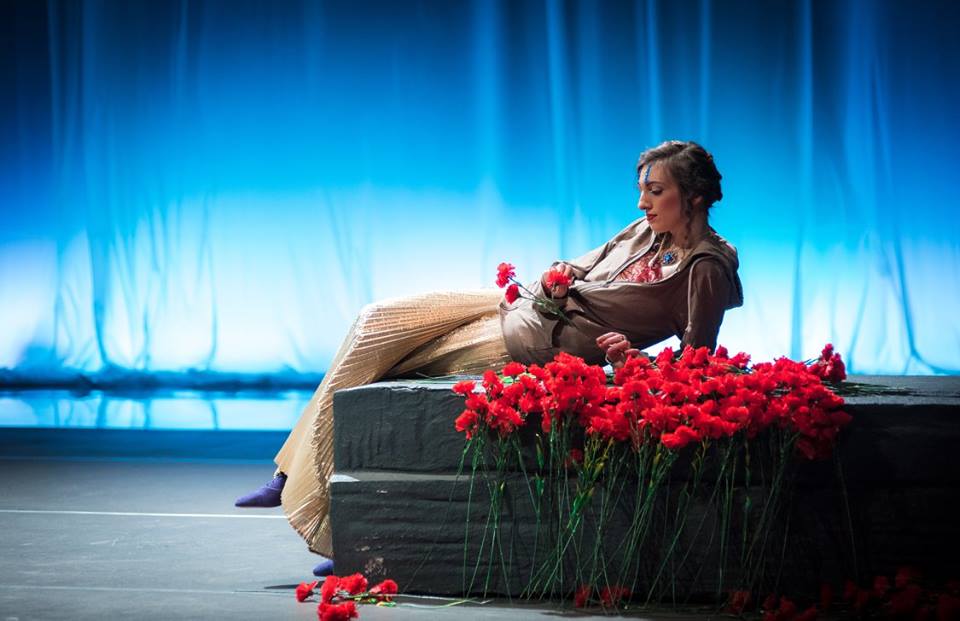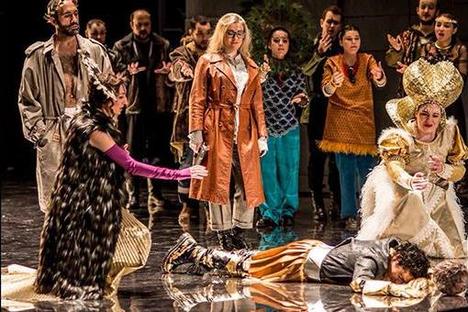
Stand out of my sunlight - Phaéton Versailles
30/05/2018 - Forum Opéra - Laurent Bury
That Lully’s Phaéton was an allusion to Fouquet’s fall, the minister guilty of having wanted to rise too closely to the Sun King, is possible, but for his production, Benjamin Lazar has chosen a totally different interpretation. This terrible story of all-consuming ambition could take place in any setting without losing any of its force, as we are shown by Mathieu Lorry-Dupuy’s sober and monumental set and Alain Blanchot’s costumes that deliberately mix periods and places. In this lyrical tragedy where the Lullyist art of dialogue reaches its peak, everything is performed in the relationships between love and power, with two main characters for whom the thirst for glory replaces all other human sentiments. Astrée, goddess of justice, called upon in the prologue, comes back here at the end of the journey to sacrifice, with a single gunshot, an overly rash Phaéton. Quinault’s libretto is strong enough to do without the more spectacular elements and the drama itself is enough. This is perhaps why the ballets are not danced here, even if it means sometimes imposing a semblance of choreography on the members of the chorus, carried out depending on their abilities (Heures’ round dance, in the fourth act, does not always go smoothly). Benjamin Lazar handles the MusicÆterna chorus with supreme art, proposing a real role for each artist, in a striking manner in the prologue where everything is in movement and everyone seems to be following their own path.
In the orchestra pit, Vincent Dumestre conducts a lively ensemble, formed through the encounter of Le Poème Harmonique with the instrumentalists from MusicÆterna: the result is an orchestra teeming with life, upon whom the conductor imposes a rich palette of nuances, constantly changing colours where the Lullyist writing takes them, with particularly striking effects that go admirably with the atmosphere of the action.
To its dramatic qualities, the MusicÆterna chorus adds an impressive job on French prosody. The initial moments, where we only hear female voices, leaves us thinking that everything is not quite ready yet from the linguistic point of view, but after the male voices arrive, the overall balance is changed, with a vigorous performance that makes us forget any faults. And what might be surprising to the modern ear at first, is the recourse to reconstructed pronunciation that we have somewhat lost the habit of hearing since Cadmus et Hermione in 2008: indeed rare are the baroqueux(Baroque musicians) who dare to follow through with the reconstruction and adopt this pronunciation where we sound the “an” and the “en” but not the “on”, where the “s” at the end of the words can be heard, etc. For the few Russian artists called on to hold a small role, this reconstructed French is perhaps not more exotic than our French, and they fulfil their role quite well, particularly Viktor Shapovalov’s impressive Protée.
